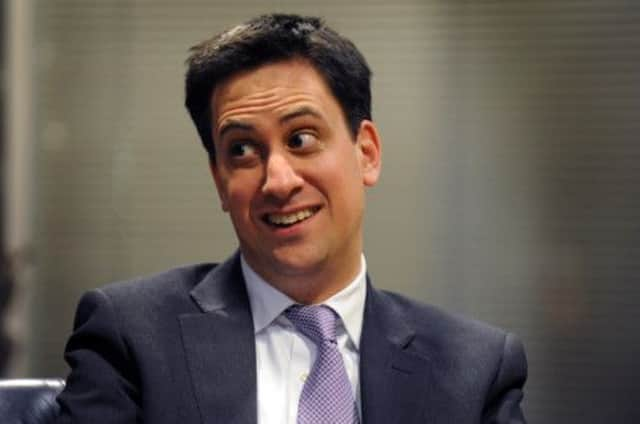Leaders: Price freeze won’t solve UK energy problems


Ordinary families who have had to endure five full years of declining real living standards will be forgiven for being attracted by the boldness of this proposal. At a stroke, Mr Miliband has put clear red water between himself and the austerity policies being pursued doggedly by the coalition government.
However, Mr Miliband’s notion of freezing prices is simplistic to the point of being unworkable. We have been here before with unfortunate results. Ted Heath tried to magic away global inflationary forces in the early 1970s by ordering Britain’s public utilities to freeze prices. But imported oil costs still went up. The result was that Britain’s nationalised industries came close to bankruptcy. Britain entered a period of economic near-collapse that it took two decades of pain to escape. None of this is to deny that Britain’s energy utilities are legitimate subjects for Mr Miliband’s criticism.
Advertisement
Hide AdAdvertisement
Hide AdThere is absolutely no doubt that the big energy firms are quick to raise consumer prices when wholesale gas costs go up, but equally slow to lower them when those markets turn downwards. True, the power companies have to fund huge infrastructure investments and their financial rate of return is modest compared with the obscene profits made by the banks. On the other hand, there is scant genuine competition in Britain’s domestic energy market with the result that the power utilities can ratchet up prices almost at will.
However, the solution which Mr Miliband proposes is unlikely to work, even if it buys him cheap votes. The UK is more dependent on imported gas as a fuel than is the rest of Europe. Yet for years, Westminster governments – including the one in which Mr Miliband served as energy secretary – have been slow to create a strategic gas reserve. As a result, in cold snaps, other countries divert supplies for their own use leaving Britain short. Price fix or not, our gas can still run out. What the UK would benefit from is a new generation of power stations using a mix of fuels, preferably of domestic origin. It needs them to provide the very competition that will bring down energy prices on a sustainable basis. That raises two thorny political issues.
The first is the controversial question of attaining cheap domestic gas by fracking methods. In the crowded UK, it may not be as easy to obtain popular assent to fracking as it has been in the United States. Already, there has been considerable opposition. What then, if fracking is rejected?
The second is the degree to which we insist on high-cost renewable energy generation, which inevitably adds to consumer and industrial prices. Britain’s politicians would do better to answer these difficult questions rather than offer quick-fix populist measures such as price freezes.
Let’s get behind Scotland’s greatest year
IT IS a staple of headline writers, yet a platitude one can so easily grow weary of: “One year to go.” Last week, it was “one year” until the independence referendum – though for many people another 12 months of the current political debate is 365 days too much. In July we had “one year” until the Commonwealth Games open in Glasgow. This week sees “one year” until the opening shots are played in the Ryder Cup at Gleneagles. One could be forgiven for thinking there will be nothing left to write about once these events actually take place.
But, wait a minute: 2014 really is going to be a stupendous year in Scotland. Politics aside, in the Commonwealth Games we are going to host the biggest global sporting event of the year aside from the football World Cup in Brazil. There will be 261 medal events competed for by 6,500 athletes from around the planet. It will be a time to forget war, terror and economic crisis and just enjoy sport.
Yesterday, saw a genuine milestone in the Games. The first 27 names were announced in Scotland’s own Commonwealth team. They include Samantha Kinghorn, who was paralysed in a freak accident while clearing snow outside her house, and Meggan Dawson-Farrell, who only this February was in hospital with a hole in her heart. If the word “braveheart” means anything, it is surely competitors such as these.
There is also Eilish McColgan, hoping to emulate the achievements of her mother Liz when the Games were last held in Scotland back in 1986.
Sporting dreams came true for 27 Scots athletes yesterday. Let’s get behind Samantha, Meggan and the rest of Team Scotland. And yes, there are only … er … 300 days to go until the Games open.